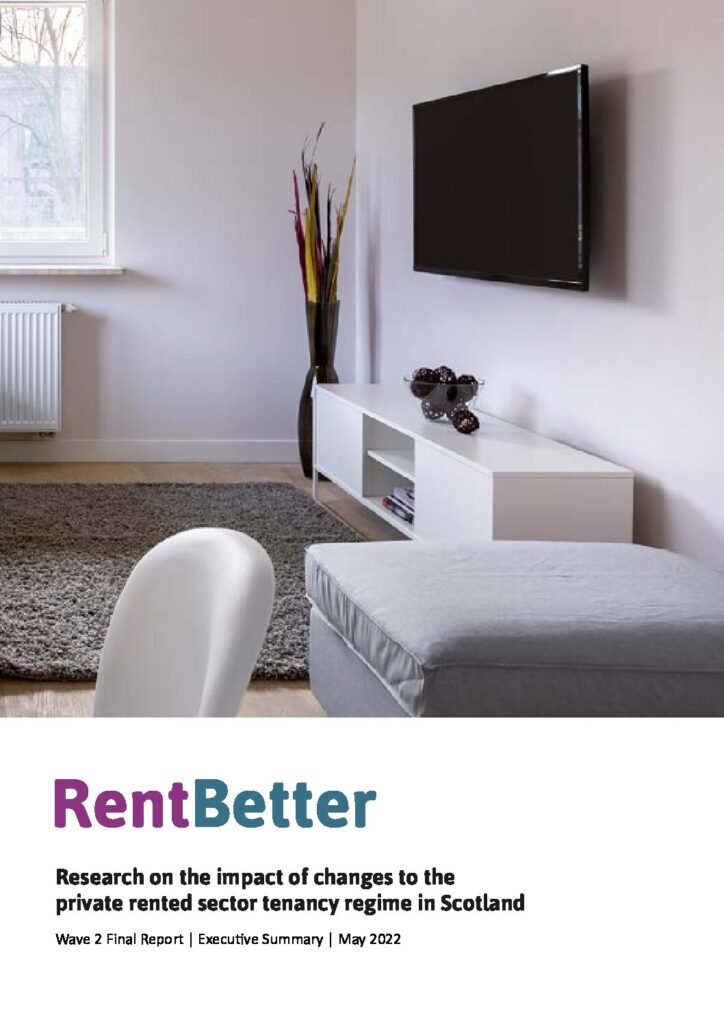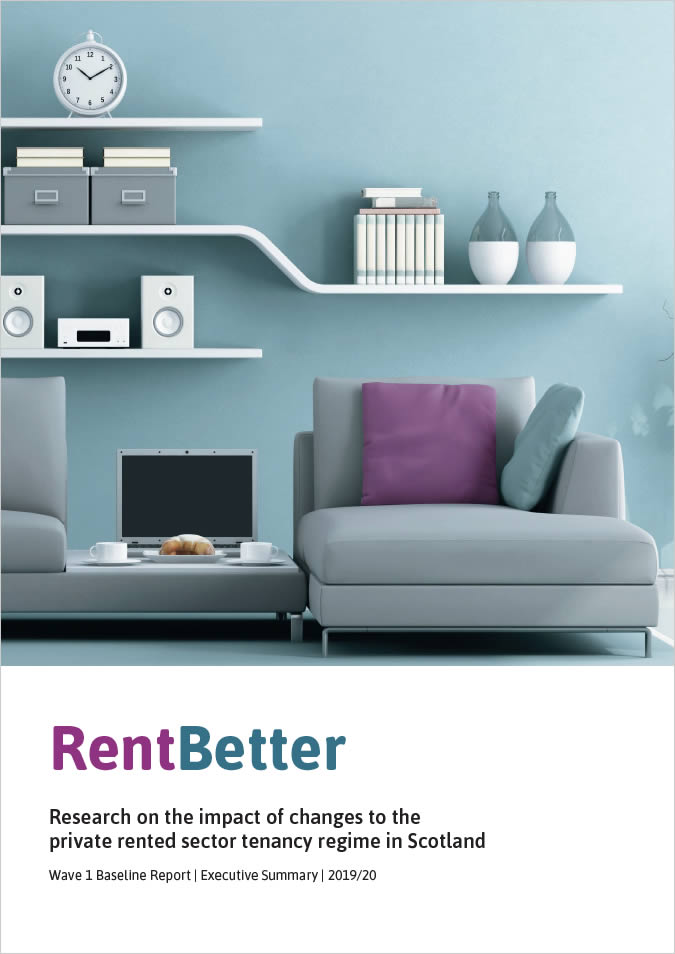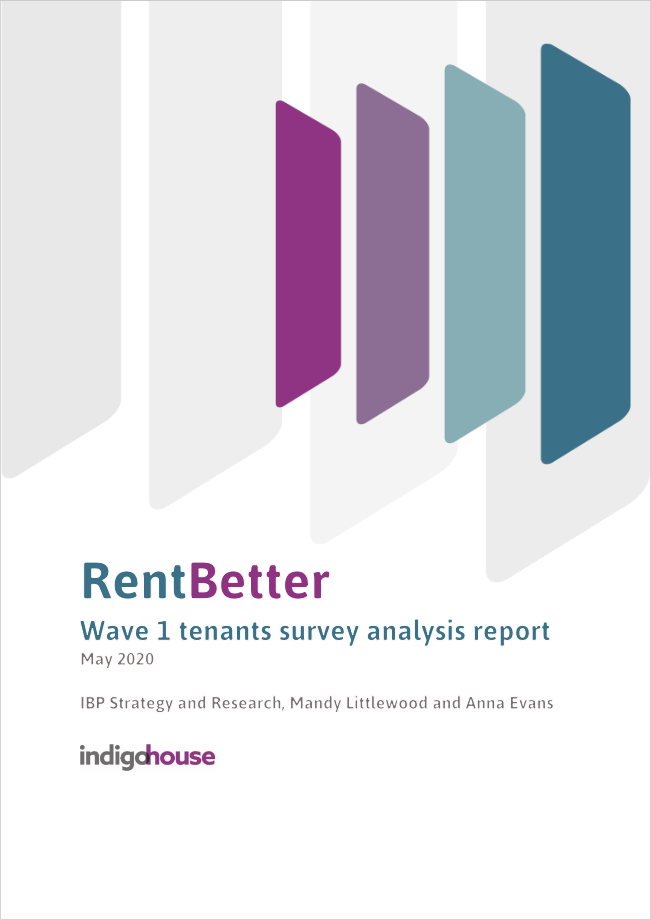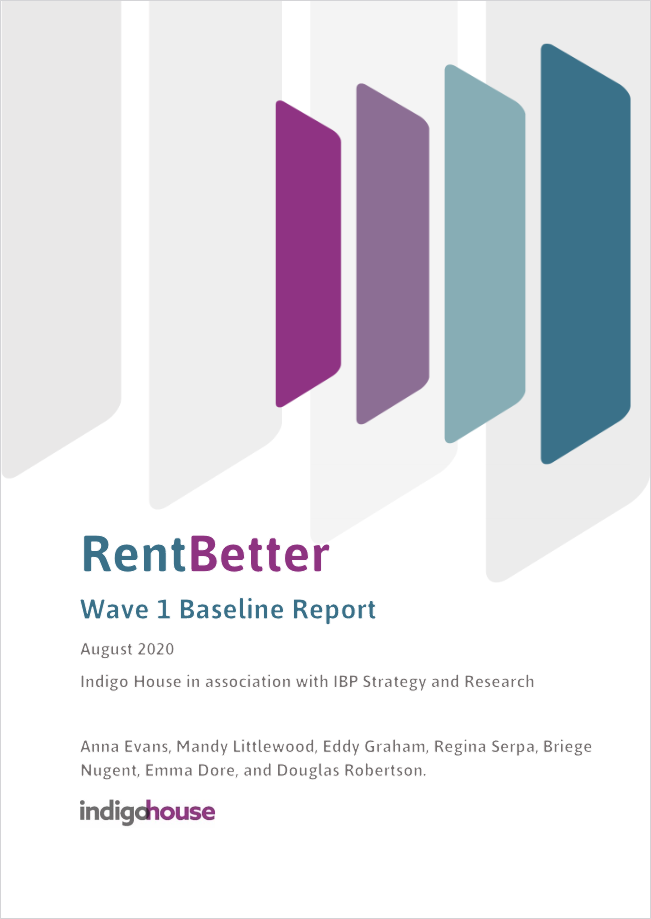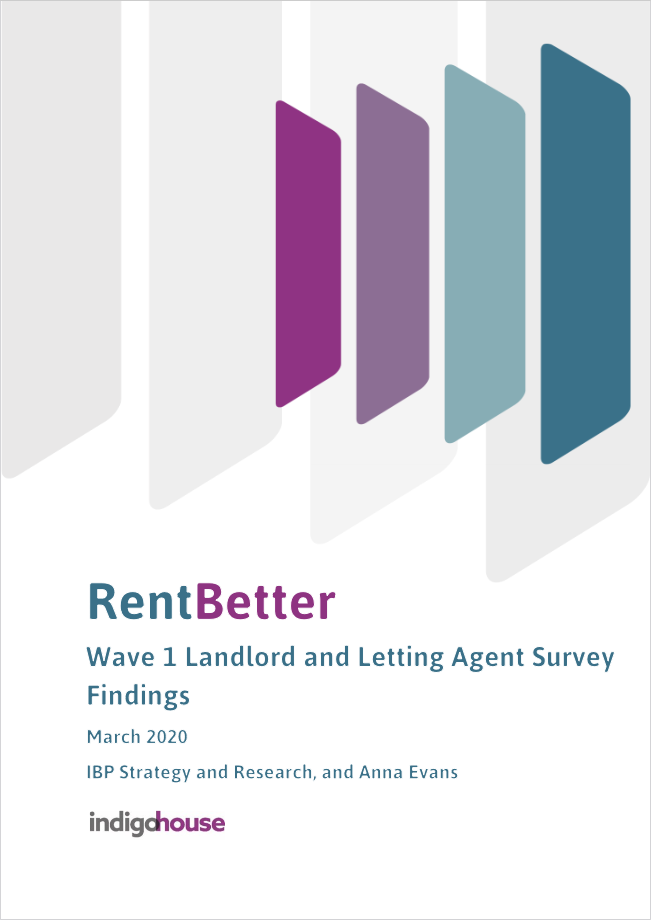
Funding at a glance
Programme: Transforming the Private Rented Sector
Amount: £366,293 grant
Approved: 2019
Timescale: Five years
Status: Funding complete
Phase: Decent Affordable Homes Phase Two
Indigo House (Rent Better)
Understanding the impact on tenants and landlords of recent changes in the Scottish private rented sector.
Why we are funding this project
Two reforms enacted in recent years represent significant change in the Scottish private rented sector:
- Private Residential Tenancy: The Private Residential Tenancy introduced in 2017 means that there are no fixed terms to tenancies, landlords cannot use no-fault evictions and rents can only increase once per year.
- First-tier Tribunal for Scotland (housing and property chamber): The tribunal’s remit has increased to deal with more disputes in the sector, such as tenancy terms, evictions and lettings agents.
Robustly reviewing these changes provides a huge opportunity to get to the heart of security of tenure, affordability and consumer power in the private rented sector. The learning from this research will help to shape further changes in the Scottish private rented sector and will also make the case for modernisation of the private rented sector in other parts of the UK.
Strategic purpose
To provide robust evidence that can be used to inform policy and practice of the solutions to address the issues of cost, quality, security and access in the private rented sector across the UK.
Project description
The Nationwide Foundation funded Indigo House in 2019 to undertake research to learn from the experiences of households living in, and landlords providing, private rental properties in Scotland. The aim is to help identify any further changes that may be needed in Scotland and to share lessons learned for the benefit of private tenants and landlords across the UK. The Nationwide Foundation wants to understand the impact of the PRT on security of tenure, access to justice, affordability, and landlord and tenant conduct.
The project takes place over three waves of research, providing longitudinal evidence on the impact of the changes in Scotland’s private rented sector. The endpoint of the evaluation is projected as 2024.
Findings from the wave 1 baseline study (2019/20) were published in October 2020. The findings, informed by a survey of renters, landlords and letting agents, found that where a positive tenant/landlord relationship exists, people feel secure in their homes. This said, where deprivation or a lack of financial power is an issue, renters still feel a sense of precarity.
In May 2022, wave two findings were launched from Indigo House’s work looking into the specific impact of the reforms on renters with lower incomes and those in housing need, as well as the experiences and future plans of landlords. Insights from interviews with these groups showed that the introduction of tenancy reforms is not enough in isolation to help lower-income renters. To achieve this, further reforms are necessary to address issues in the benefits system, increase advice and advocacy services, make tribunals more accessible and simplified, and give local authorities resources for targeted enforcement at the lower end of the market.
The Nationwide Foundation believes that the evidence from the experience in Scotland should be used to make further improvements to the Scottish private rented sector, as well as providing essential insight to inform policymaking in other areas of the UK.
The third and final wave of research findings can be expected in 2024. The full research and more information about the project can be found on the RentBetter online hub.
Back to funding 2016–present
